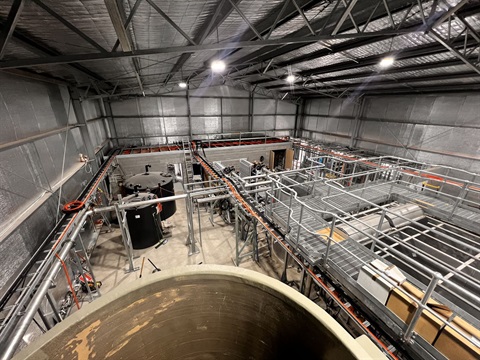WIPO Member States approve treaty addressing intellectual property (IP), genetic resources, and associated traditional knowledge during a historic Conference in Geneva, Switzerland, after decades of discussions.
AusBiotech is working with IP Australia following the announcement of the landmark Treaty on Intellectual Property, Genetic Resources and Associated Traditional Knowledge, after its approval by WIPO Member States at a Diplomatic Conference held from 13-24 May at United Nations WIPO’s Geneva headquarters.
This is the first WIPO Treaty to address the interface between intellectual property, genetic resources and traditional knowledge and the first WIPO Treaty to include provisions specifically for indigenous peoples as well as local communities.
WIPO said the aim of the treaty is to “enhance the efficacy, transparency and quality of the patent system”, and “prevent patents from being granted erroneously for inventions that are not novel or inventive with regard to genetic resources and traditional knowledge associated with genetic resources”.
The Treaty, once it enters into force with 15 contracting parties, will establish in international law a new disclosure requirement for patent applicants whose inventions are based on genetic resources and/or associated traditional knowledge. The disclosure requirement is set out in Article 3 of the Treaty and requires applicants to disclose the country of origin or the source of the genetic resources.
Article 3 states, where an invention is based on traditional knowledge associated with genetic resources, the applicant is required to disclose the indigenous peoples or local community, as applicable, who provided the traditional knowledge associated with genetic resources or, if not known, the source of the traditional knowledge associated with genetic resources. It also states that information is to be provided by the applicant in the form of a declaration affirming that the content of the declaration is true and correct to the best knowledge of the applicant.
Article 4 of the Treaty includes a non-retroactivity clause that the disclosure requirement will not apply to patent applications filed before the Treaty enters into force. The Treaty also includes provisions to allow opportunities to rectify a failure to disclose the required information, and to provide that a patent cannot be invalidated solely on the basis of a failure to meet the disclosure requirement.
Over 1,200 WIPO member state delegates, observers, including indigenous peoples, and stakeholders convened for the Diplomatic Conference on Genetic Resources and Associated Traditional Knowledge to approve the Treaty last month.
Negotiations for the Treaty began at WIPO in 2001, initiated in 1999 with a proposal by Colombia, where discussions were notable for their inclusion of indigenous peoples as well as local communities. The WIPO Intergovernmental Committee on Intellectual Property and Genetic Resources, Traditional Knowledge and Folklore (IGC) was established in 2000 with negotiations beginning in 2001.








